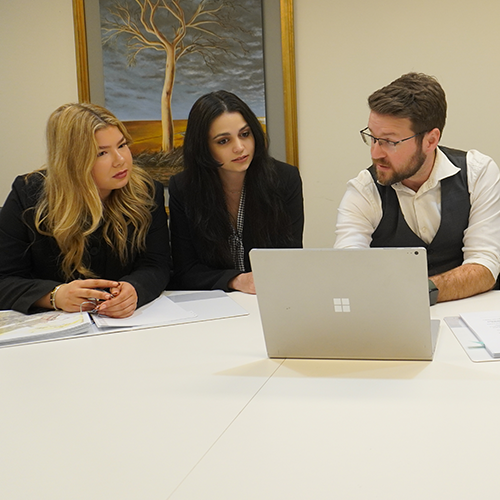Waste & Environmental Law
Hones Lawyers are specialists in advising on all issues related to waste.
SUCCESS RATE
95%
CASES WON OR MATTERS SETTLED
1000+
CLIENTS
4000+
Expert Waste & Environmental Lawyers
Our lawyers in Sydney have advised Federal, State and Local Governments, developers, and waste service providers of all sizes on issues related to waste and environmental law. We recognise that the waste industry is a complex industry, with its own unique issues, economic drivers, and most of all, legal issues.
Our years of experience has given us a deep understanding of the waste industry. We understand how waste facilities operate, and the range of practical and legal issues faced by waste facilities. We know how complex waste supply chains can be, and the importance of ensuring that waste contracts capture all of the relevant commercial and legal risks.

How Hones Lawyers Can Help
Unlawful Waste Dumping
DA and Licences for Waste Facilities
Environment Protection Authority Investigations
Clean Up Notices
Waste Contracts
Waste Regulations
Environmental law experts have helped clients through a range of waste issues
We have extensive contacts with State and local government regulators, which allows us to obtain the best results for our clients. Our operational knowledge and extensive experience means that you can be confident that we will find the most practical and cost-effective solution to all waste-related issues.
Our range of Environmental Law
EPA investigations and prosecutions
Development consent and licence approvals processes
Land and Environment Court appeals
Drafting waste tenders and negotiating contracts
ACCC authorisations in relation to waste tenders and services
Probity issues in relation to waste tenders and contracts
Waste contract disputes including waste management contract disputes
Operational issues such as resource recovery orders/exemptions, transportation of waste, land application of waste
Interstate transport of waste
Waste classification and asbestos clearance issues
Asbestos waste issues
Waste levy issues
Compliance with the Protection of the Environment Operations Act and Protection of the Environment Operations (Waste) Regulation 2014
New legislation
Illegal dumping investigations
The Container Deposit Scheme, and negotiations on Refund Sharing Agreements
Contact Hones Lawyers
If you are looking for an Waste, Land and Environemntal law specialist in Sydney, we can help. For more information on waste related matters call us on 02 8318 0788.
Waste & Environmental Law
Frequently Asked Questions

What can I do about waste which has been dumped on my land?
Depending on the type and amount of waste, you can report the offence to your local council, the police or the NSW Environment Protection Agency. You may also want to first investigate the nature of the waste and any contamination. You can also take action directly against the dumper if you know their identity. If the issue continues, get in touch with the team at Hones Lawyers and we will advise you on the best course of action.
When is an environment protection licence required?
Schedule 1 of the Protection of the Environment Operations Act lists the activities which require a licence to be carried out in NSW. If you need further help, the team at Hones can provide specialist advice and guidance when communicating with the EPA, in preparing licence applications, and advising on licensing requirements.
What does a Waste Management Contract cover and is it mandatory?
A Waste Management Contract focuses on these waste streams: general, recycling, organics, liquid waste, secure destruction, clinical and related. Examples of some of the core waste services that this contract covers include waste collection, transportation, processing, treatment, disposal and more.
It is also a mandatory, whole-of-government contract that predominantly applies to commercial waste.
Can you help review a waste contract?
Waste contracts can be complex and our lawyers are experienced in reviewing and negotiating contracts, waste tenders, as well as assisting with contract disputes.
Customer Testimonials
We’ve helped thousands of clients throughout NSW with their legal matters.
